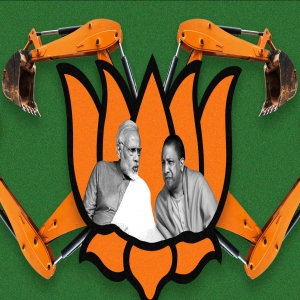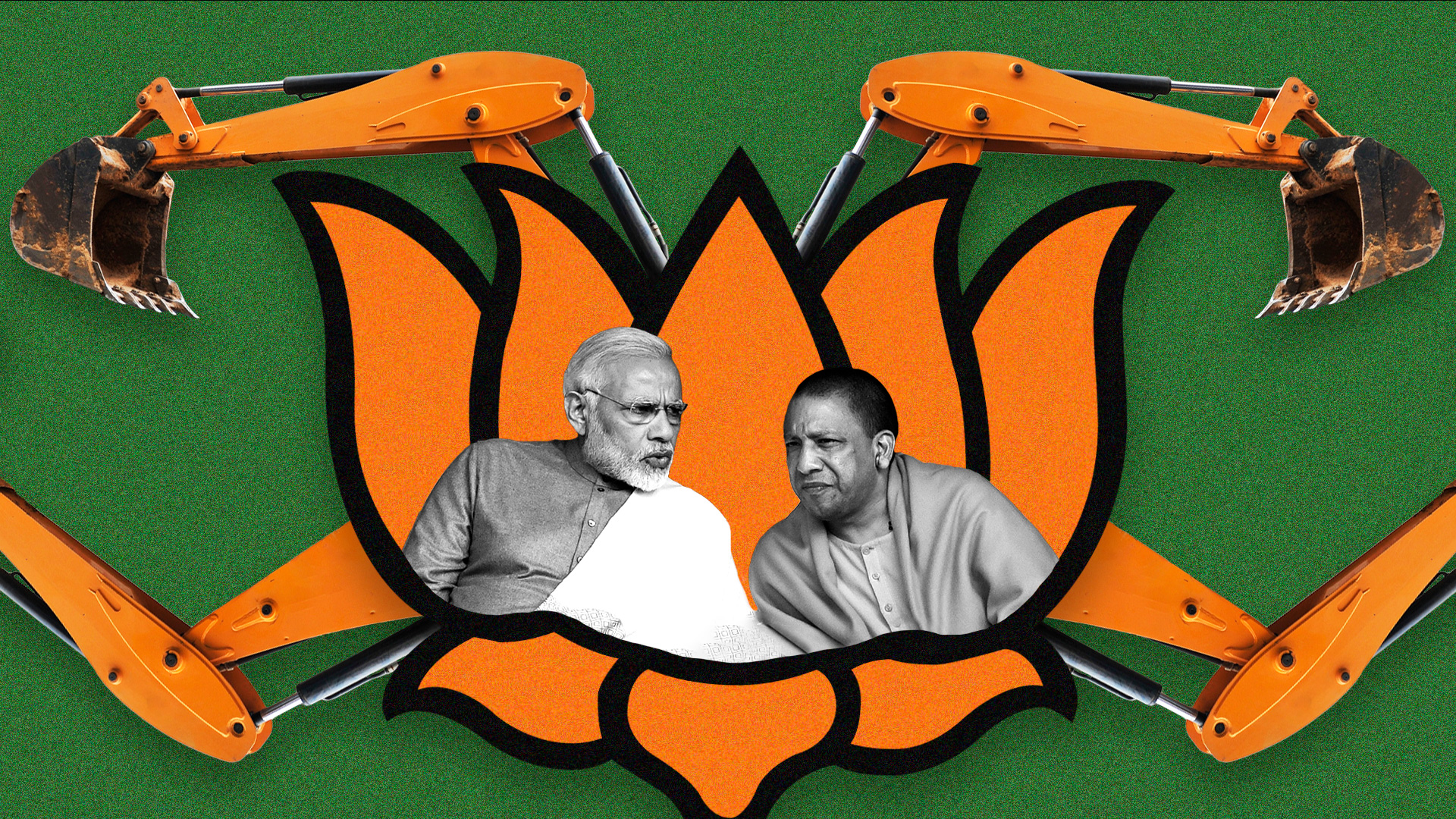
.jpg) Dr. John Singarayar
Dr. John Singarayar

In India, the troubling trend wherein authorities use bulldozers to destroy homes, businesses, and other structures connected to people accused of crimes without following the proper legal procedures has come to be known as "bulldozer justice." This increasingly widespread practice in recent years represents a significant breakdown of the rule of law and the emergence of a type of governance that places spectacle above justice. The state has weaponised the bulldozer, which was formerly a symbol of advancement and development, to compel obedience, threaten opposition, and carry out extrajudicial punishments. This practice has significant ramifications and calls into question India's democracy, legal system, and human rights laws.
Fundamentally, bulldozer justice is a concerning divergence from the due process and fair trial ideals that form the cornerstone of any democracy. Under Article 21 of the Indian Constitution, the right to life and personal liberty are guaranteed, along with the right to equitable treatment by the state. These constitutional protections are violated when bulldozers are used to summarily demolish the properties of people who are accused of crimes frequently, without a court order or official adjudication. It avoids the legal procedures meant to guarantee that justice is done and seen to be done. The rule of law is based on three fundamental rights: the right to a fair trial, the right to appeal, and the presumption of innocence until proven guilty. These ideals are compromised by bulldozer justice, which imposes punishment prior to the establishment of guilt.
Authorities frequently defend the practice by pointing to unauthorised constructions or illegal encroachments as justification. The targeted and selective nature of these demolitions, however, begs questions about their actual purpose. Bulldozer justice appears to be used frequently as a means of collective punishment, especially against political opponents and marginalised communities. Bulldozer justice may be more about sending a message to specific groups within society than it is about maintaining legality, as evidenced by its selective application of the law. It has a chilling effect, making people fear punishment for their identities or political affiliations in addition to their actions.
It is impossible to overestimate the bulldozer's symbolic significance in these situations. It stands for the state's ruthless power, which can quickly destroy people's houses and means of subsistence. A bulldozer tearing through a neighbourhood, frequently with little or no warning, is a potent symbol of state power, intended to evoke fear and illustrate the repercussions of disobeying the government. This devastation is widely publicised by state-run media as well as social media, which supports the image of a strong, decisive government that acts without hesitation. This story, however, hides the underlying injustice and the human cost of these acts.
Bulldozer justice comes at a tremendous human cost. Overnight, families find themselves without a place to live, their belongings buried beneath debris, and their lives upended. Losing a home means more than just demolishing a physical building; it also means losing a place that is significant to one's identity, security, and memories. A home or business loss is often a financial catastrophe from which many people may never fully recover, particularly in impoverished communities. Such an event also causes severe psychological trauma, which makes one feel scared, angry, and helpless. These behaviours frequently push already marginalised and vulnerable groups farther into poverty and disenfranchisement by increasing their marginalisation and vulnerability.
Minority communities in India, particularly Muslims, bear the brunt of bulldozer justice. This disproportionate impact has led to claims that the practice is a form of state-sponsored communal violence, disguised as law enforcement. The selective demolition of Muslim neighborhoods, often in response to communal violence or protests, fuels the perception that the state is complicit in anti-Muslim prejudice. This is a direct contradiction to the principles of equality before the law and secularism that underpin Indian democracy, and it threatens social cohesion.
Bulldozer justice is not an isolated incident, but a symptom of a larger authoritarian trend in Indian politics. This trend is characterized by the government's use of force and coercion to maintain control and suppress dissent. The persecution of civil society organizations, the tightening of regulations on free speech and assembly, and the use of harsh legislation to intimidate opponents are all part of this pattern. Bulldozer justice is just one more instance of India's systematic erosion of democratic norms and values, and it should be a cause for concern.
It is also extremely concerning that bulldozer justice is becoming the norm. It is a sign of changing societal values that such actions are frequently hailed as examples of a strong government by certain segments of the public and media. There is a risk of authoritarianism in the air, as evidenced by the loss of compassion for those impacted, the acceptance of state violence as an acceptable tool of governance, and the contempt for due process. The politicisation of law enforcement, in which the state apparatus serves the interests of those in power instead of enforcing justice and defending the rights of all citizens, facilitates this normalisation.
It is critical to take into account the larger socio-political context of bulldozer justice when examining its rise. Deeply ingrained tensions and inequality characterise India's diverse and complex society. Bulldozer justice can flourish in the current climate due to the rise of majoritarian politics, which prioritise the needs of the majority over those of minorities. Extrajudicial actions are justified by the demonisation of particular communities and the portrayal of them as threats to law and order or national security. Even if it means breaking the law, the use of bulldozers to destroy properties is justified as a necessary precaution to safeguard the country.
This strategy is, however, ill-advised and ultimately ineffective. The root causes of crime and social unrest are not addressed by bulldozer justice. Rather, it makes them worse by widening rifts, igniting animosity, and eroding confidence in the government. Communities are more likely to become disenfranchised from the democratic process and less likely to cooperate with law enforcement when they perceive the state to be targeting and victimising them. This might set off a vicious cycle of repression and violence in which the state's actions incite more unrest, which in turn prompts more repressive measures.
Reaffirming the values of democratic governance and the rule of law is necessary in order to tackle the problem of bulldozer justice. A legislative framework that guarantees accountability and openness in the exercise of state power is necessary for this. In order to ensure that the state stays within its bounds and to protect constitutional rights, the judiciary plays a critical role in this. The rights of people and communities, especially those most at risk from state violence, must be zealously upheld by courts. In addition, they must be prepared to hold the state responsible for breaking the law rather than submitting to the executive branch.
Civil society also has an important role in challenging bulldozer justice. It is imperative that human rights organisations, media outlets, and activists persist in their efforts to reveal and chronicle incidents of state violence, support the rights of individuals impacted, and advocate for structural changes. Raising public awareness and educating the public are essential to transforming the perception of bulldozer justice from one of unlawful and unjustified violence to one of necessary state action. The normalisation of state violence must be opposed by forging coalitions across communities, encouraging solidarity, and elevating the voices of those impacted.
A more comprehensive discussion regarding the state's role in society is also necessary. The state ought to be viewed as a safeguard of justice and a defender of rights rather than as a tool of oppression. In order to achieve this, governance must be rethought with an emphasis on social justice, equality, and human dignity. In addition, inclusive and equitable policies must address the underlying causes of social unrest, such as discrimination, poverty, and inequality. Human rights should never be sacrificed for development, and law enforcement should never be used as a political tool.